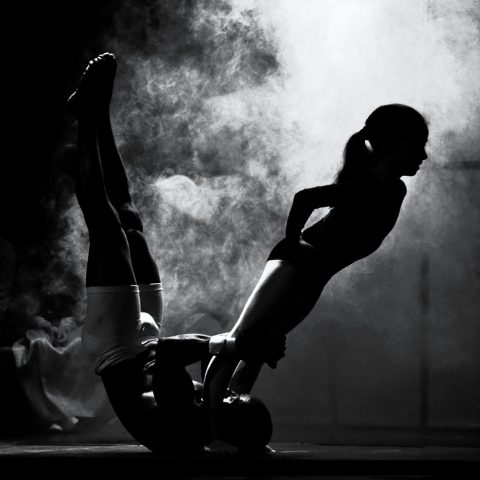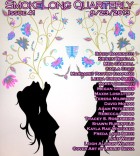This story is very focused on objects and materials—a knife, a shirt, a microwave, a television—and yet is about so much more. Rachel’s classmates told her that objects couldn’t feel anything, but every thing in this short flash is full of meaning and feeling. Can you talk a little about what you were trying to do with the objects in this story?
The idea for this story came from thinking about the power of a single object—how it can absorb emotional energy. The knife was originally to be the main focus, but as the story progressed it became clear that Rachel is concerned with the feelings of objects. She attaches meaning and emotion to many items and materials, although she may not admit that to herself.
I grew up learning to value material things. My parents were blue-collar workers and my mother especially believed that if one could acquire enough material possessions, one could prove herself valuable and worthy. You could transcend class through objects. So as the story materialized, I began to realize that it was about much more than just this single object of the knife—it was also about how Rachel experiences the world through materials.
The title here is so perfect. Are titles the first thing you write? The last? Do they come easy or hard for you?
I usually title a piece after it’s written—many times that is a part of my revision process. As a story takes shape through edits, a natural title typically emerges. For this story, as soon as I wrote the second sentence (where the instruction “pierce to vent” appears), I felt that lightning-strike sensation of this is it. It doesn’t always happen that way, but it’s delightful when it does.
Have you ever bought anything from a home shopping channel? If not, why?
I have a curious relationship with home shopping channels. They were a novelty when I was growing up—an innovative idea in the pre-internet age. My sister and I used to stay up very late on the weekends and eventually there would be nothing on TV to watch, so we would turn on one of the home shopping channels. There was a bit of comfort in it—a live host keeping you company through the night, talking into the camera to you in a very personal way, courting you. It became a ritual for us. I’ve never actually purchased anything from a home shopping channel, but I will still occasionally turn one on in the middle of the night when I can’t sleep. It has a lullaby effect on me.
Can you talk a little about your forthcoming memoir?
The Girl Factory is a coming-of-age memoir set in Connellsville, PA, in the 1980s and 90s. I grew up in this small industrial town as the daughter of two life-long factory workers. The book is concerned with the idea of being shaped by a place, and also being defined by your work. There is a focus on my interior life and the complicated relationship I had with my mother, fraught with anxiety, obsession and superstition.
What is your next project?
I’m working on a novel now, about a girl whose father is on death row. I am fascinated with loss—both the loss of life through death and the loss of less tangible things like innocence and love. I have a short story forthcoming in Joyland that is actually an extract from the novel-in-progress.




 The core workshop of SmokeLong Fitness is all in writing, so you can take part from anywhere at anytime. We are excited about creating a supportive, consistent and structured environment for flash writers to work on their craft in a community. We are thrilled and proud to say that our workshop participants have won, placed, or been listed in every major flash competition. Community works.
The core workshop of SmokeLong Fitness is all in writing, so you can take part from anywhere at anytime. We are excited about creating a supportive, consistent and structured environment for flash writers to work on their craft in a community. We are thrilled and proud to say that our workshop participants have won, placed, or been listed in every major flash competition. Community works.